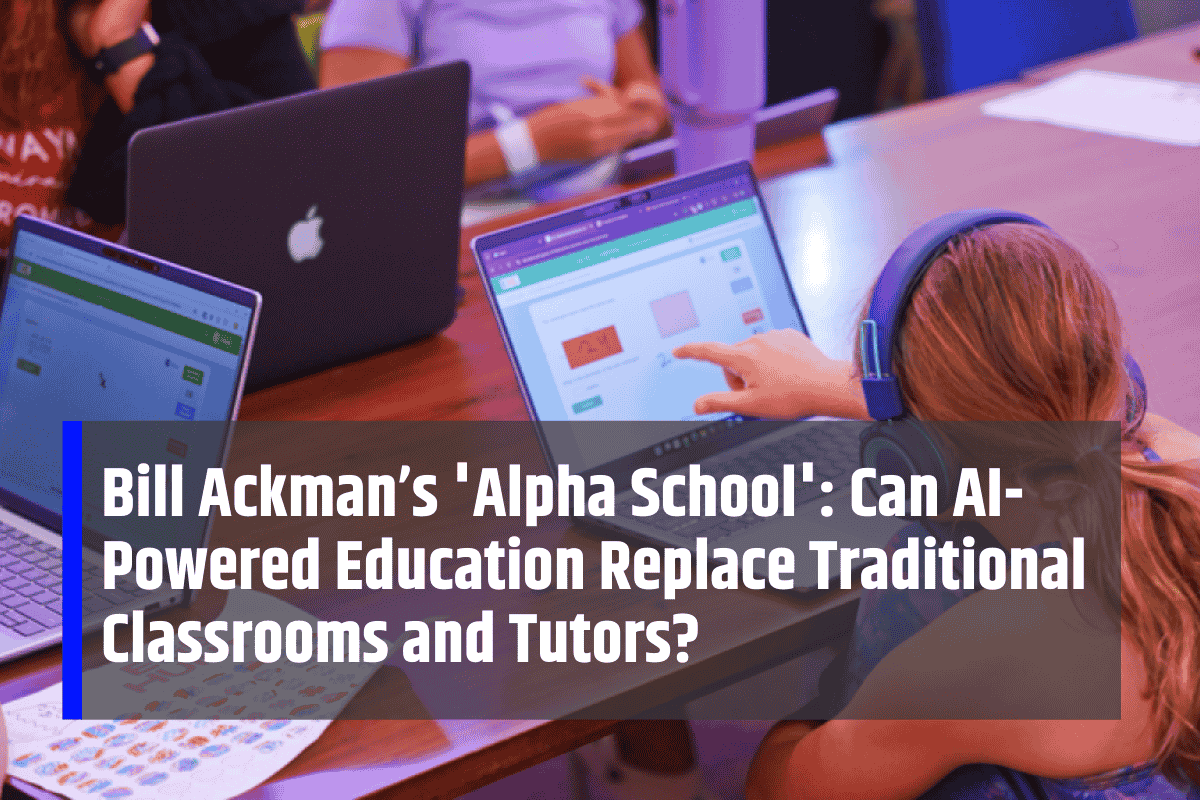Imagine a future where every student has a personal tutor—an artificial intelligence that understands their strengths, identifies weaknesses, and adapts lessons to their pace. Bill Ackman’s “Alpha School” aims to turn that vision into reality. From New York to San Francisco, this model is sparking conversations about education’s future.
What Is Alpha School?
Alpha School is an AI-driven learning platform designed to personalize education at scale. Conceived by hedge-fund leader Bill Ackman, it operates across metropolitan and suburban areas, including Chicago, Boston, Los Angeles, and Atlanta. Students connect from classrooms, after-school programs, or home, receiving customized lesson plans and instant feedback through adaptive technology.
Personalized Learning at Scale
One of Alpha School’s biggest advantages is personalization. In crowded New York classrooms, students often fall behind despite teachers’ efforts. With Alpha School, one learner in Denver may advance quickly through algebra, while another in Philadelphia focuses longer on reading comprehension. The system adapts, ensuring progress is tailored rather than tied to rigid schedules.
Accessibility and Affordability
Private tutoring in cities like Houston, Miami, and Seattle can be prohibitively expensive. Alpha School offers a cost-effective alternative. Its online format erases geographic barriers, enabling a child in rural Michigan to access the same resources as one in San Francisco. Its on-demand nature provides flexibility for families balancing work and school commitments.
Learning From Data
Alpha School thrives on data—tracking vocabulary mastery in Portland, identifying math challenges in Minneapolis, and testing different teaching media in Washington, D.C. This analysis sharpens instruction, but it also raises concerns. Will algorithmic bias disadvantage students in underserved communities? Ensuring equitable support is crucial for AI to serve every demographic fairly.
The Irreplaceable Human Element
Despite its promise, AI lacks human qualities. Teachers in Boston or San Jose offer mentorship, empathy, and encouragement—elements that machines cannot replicate. A tutor in San Diego or Charlotte might inspire curiosity in art or literature. Human connection fosters motivation, resilience, and social skills—components central to student growth and community cohesion.
Hybrid Approaches in Practice
Rather than replacing educators, some schools blend AI with traditional teaching. In Detroit, teachers use Alpha School for practice drills, then expand lessons in the classroom. In Pittsburgh and Portland, hybrid models combine AI’s efficiency with personalized teacher feedback. This approach balances scale with empathy, allowing both technology and educators to complement each other.
Could AI Replace Tutors Entirely?
AI-driven platforms are gaining traction in both major cities like Los Angeles and smaller ones like Providence. Their appeal lies in affordability, accessibility, and adaptability. Yet fully replacing classrooms and tutors remains unlikely. Relationships, cultural context, and inspiration are integral to learning. AI is more likely to serve as an ally than a substitute.
Challenges to Consider
Alpha School’s success depends on addressing key challenges. Data security, student privacy, and equitable access remain unresolved concerns. Without safeguards, low-income or rural communities risk being left behind. Moreover, overreliance on technology could diminish the development of emotional intelligence, teamwork, and problem-solving skills fostered through human interaction.
Looking Ahead
The future of education likely lies in collaboration rather than competition between AI and teachers. AI tools like Alpha School bring efficiency, personalization, and broad accessibility. Educators provide mentorship, cultural awareness, and the human warmth machines cannot replicate. Together, they can create richer, more inclusive educational experiences for diverse learners across the nation.
Bill Ackman’s Alpha School represents a bold step toward reimagining education. Its promise of personalized, accessible, and efficient learning resonates in cities where traditional systems are strained. Yet the human dimension remains essential. The future may not be about choosing between AI and teachers but blending their strengths to guide the next generation.





Leave a Comment